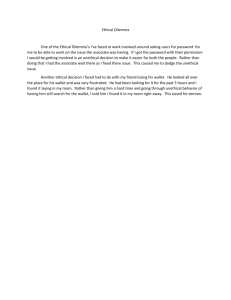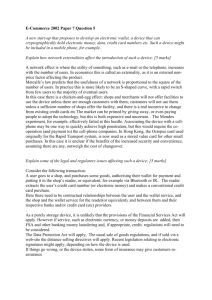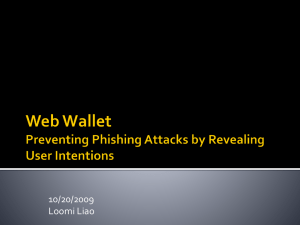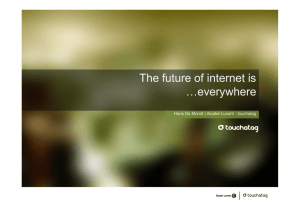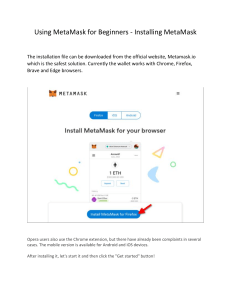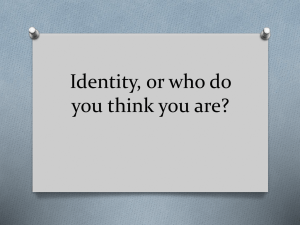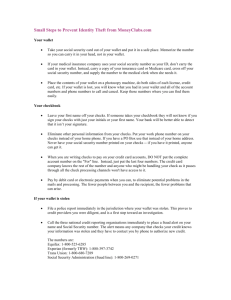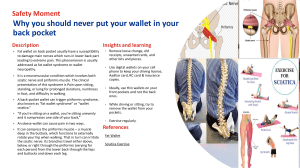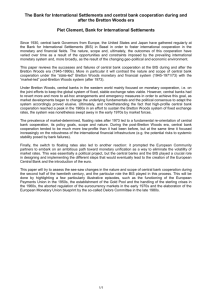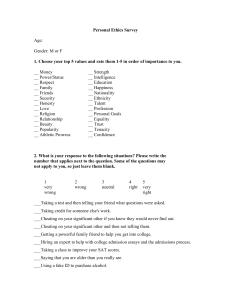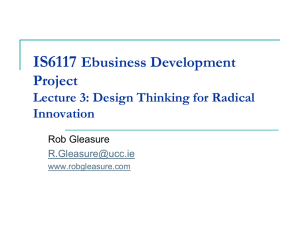Chapter Glossary
advertisement
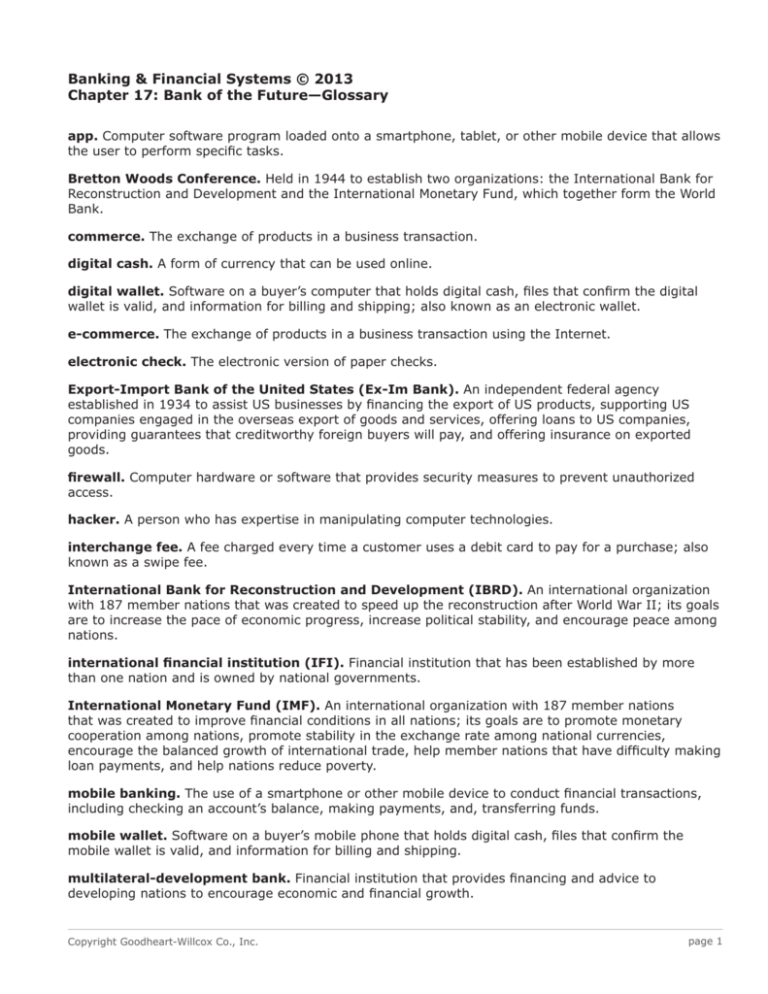
Banking & Financial Systems © 2013 Chapter 17: Bank of the Future—Glossary app. Computer software program loaded onto a smartphone, tablet, or other mobile device that allows the user to perform specific tasks. Bretton Woods Conference. Held in 1944 to establish two organizations: the International Bank for Reconstruction and Development and the International Monetary Fund, which together form the World Bank. commerce. The exchange of products in a business transaction. digital cash. A form of currency that can be used online. digital wallet. Software on a buyer’s computer that holds digital cash, files that confirm the digital wallet is valid, and information for billing and shipping; also known as an electronic wallet. e-commerce. The exchange of products in a business transaction using the Internet. electronic check. The electronic version of paper checks. Export-Import Bank of the United States (Ex-Im Bank). An independent federal agency established in 1934 to assist US businesses by financing the export of US products, supporting US companies engaged in the overseas export of goods and services, offering loans to US companies, providing guarantees that creditworthy foreign buyers will pay, and offering insurance on exported goods. firewall. Computer hardware or software that provides security measures to prevent unauthorized access. hacker. A person who has expertise in manipulating computer technologies. interchange fee. A fee charged every time a customer uses a debit card to pay for a purchase; also known as a swipe fee. International Bank for Reconstruction and Development (IBRD). An international organization with 187 member nations that was created to speed up the reconstruction after World War II; its goals are to increase the pace of economic progress, increase political stability, and encourage peace among nations. international financial institution (IFI). Financial institution that has been established by more than one nation and is owned by national governments. International Monetary Fund (IMF). An international organization with 187 member nations that was created to improve financial conditions in all nations; its goals are to promote monetary cooperation among nations, promote stability in the exchange rate among national currencies, encourage the balanced growth of international trade, help member nations that have difficulty making loan payments, and help nations reduce poverty. mobile banking. The use of a smartphone or other mobile device to conduct financial transactions, including checking an account’s balance, making payments, and, transferring funds. mobile wallet. Software on a buyer’s mobile phone that holds digital cash, files that confirm the mobile wallet is valid, and information for billing and shipping. multilateral-development bank. Financial institution that provides financing and advice to developing nations to encourage economic and financial growth. Copyright Goodheart-Willcox Co., Inc. page 1 regional-development bank. Financial institution that focuses on financing projects that improve their region. smart card. A plastic card that has an embedded computer chip to store data. smartphone. A mobile device that not only acts as a cell phone, but also performs tasks such as accessing the Internet, taking photos, sending e-mail, and running some software applications. social media. Forms of electronic communication used by groups of people to share information. trade deficit. Occurs when a country imports more than it exports. trade surplus. Occurs when a country exports more than it imports. trend. A general movement or tendency. World Bank. An international organization that works toward the goals established at the Bretton Woods Conference to improve the conditions in all nations. Copyright Goodheart-Willcox Co., Inc. page 2
